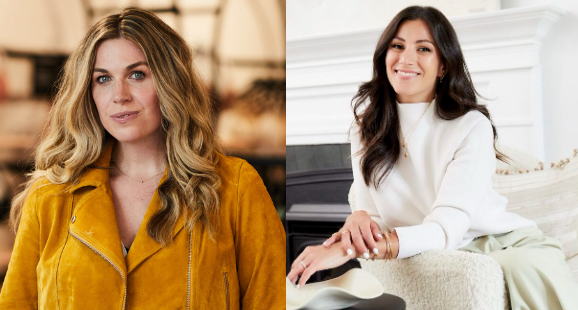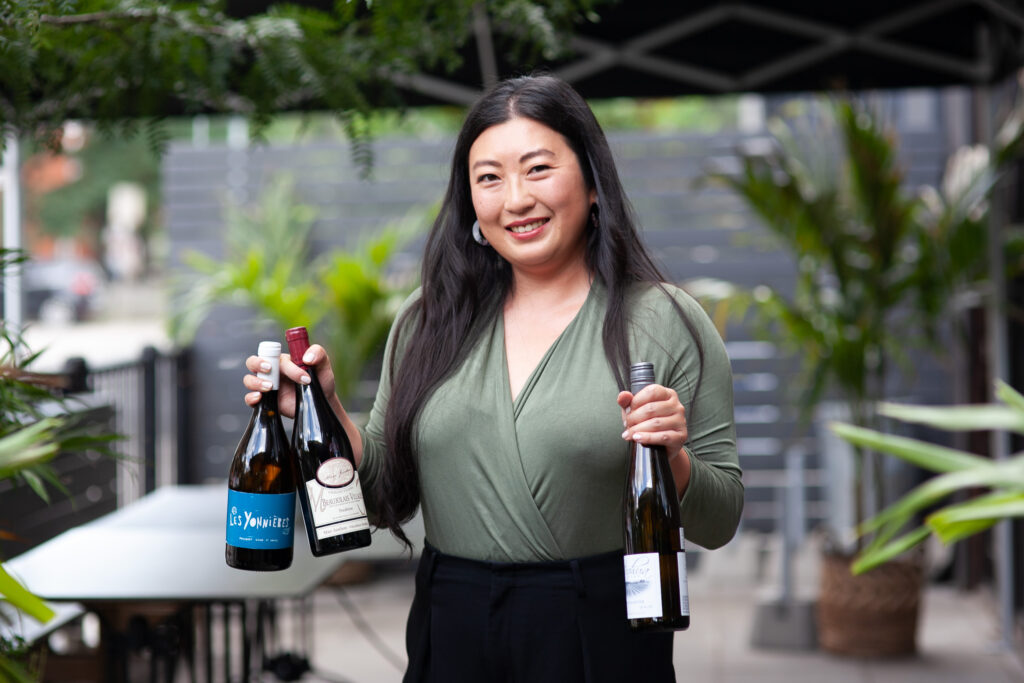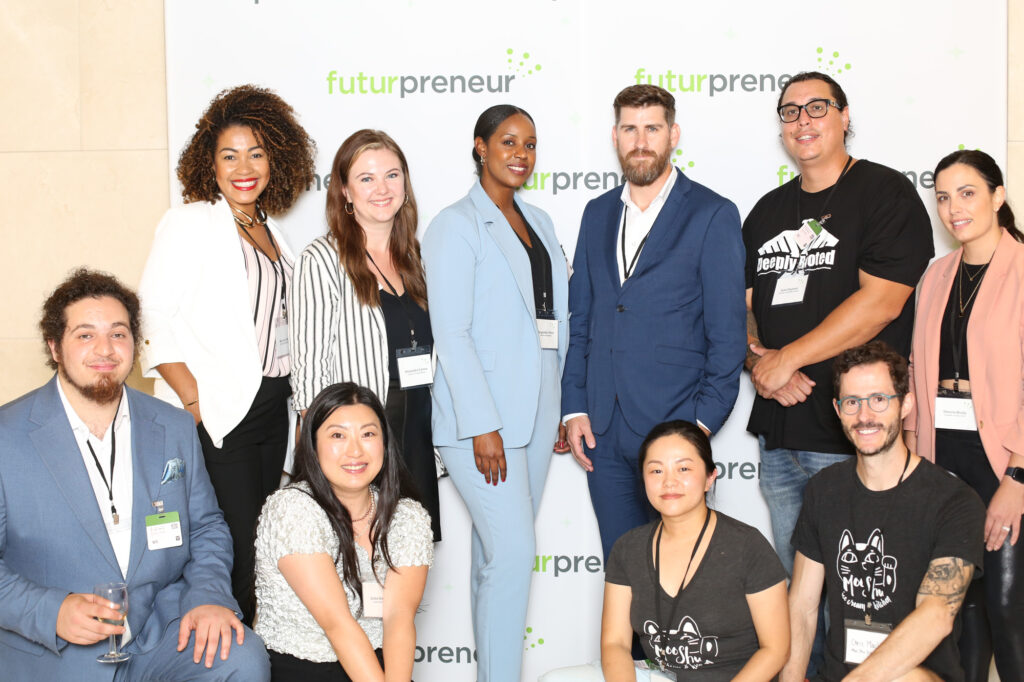
- Entrepreneurship
E03: Think Bigger —Escaping a Micro-Entrepreneurship Mindset With Frénie Jean-Baptiste
Tune into our new podcast, Startup + Prosper! Our podcast is dedicated to the key elements of the entrepreneurial mindset, with a particular focus on the current state of Black entrepreneurship in Canada. Each of the episodes aims to inspire and educate listeners about Black-owned businesses and their reality while providing more insight into Futurpreneur’s goals to grow, learn and help address the disparities faced by the BIPOC entrepreneurial community. Read their stories, listen and subscribe to our podcast, Startup + Prosper:
E03: Think Bigger —Escaping a Micro-Entrepreneurship Mindset With Frénie Jean-Baptiste
If it doesn’t serve you, let it go. What happens when we apply that to our mindsets?
Micro-entrepreneurship refers to small companies running on minimal investment, operated by a handful of employees. If that is what Frénie Jean-Baptiste, founder of Bayard Gâteaux and Bayard Royal, first set out to do, she always saw the bigger picture. In 2015, she launched an online business specializing in baking and delivering buttercream cakes. Since then, thousands of happy tasters have enjoyed these sweet treats at home and at events, such as weddings, parties and other celebrations. In 2020, Jean-Baptiste launched Bayard Royal, a line of rum cake products that are now sold online and at various points of sale across the province.
While it may be a small business, it is a mighty operation with an impressive reach. Frénie Jean-Baptiste never considered the scale of her operations, and we could all benefit from eschewing the micro-entrepreneurship mentality, which is very present among Black entrepreneurs.
Recent studies examine the realities of Black entrepreneurship in Canada. A report by Pitch Better Canada determined that 45% of Black women entrepreneurs consider their business’ lifecycle in a growth phase. Rise Up, a research project commissioned by the Black Business Professional Association (BBPA) conducted among 700 Black women entrepreneurs, concluded that the majority of the businesses surveyed operated from home were online, and had no employees. Moreover, the Inclusive Entrepreneurship: Exploring the Barriers Facing Black Entrepreneurs in Canada project, led by the African Canadian Senate group, highlighted the lack of access to capital and resources — 44% of businesses accounted for are not able to pay themselves. And while this is the case, 87% of Black entrepreneurs surveyed report that they are somewhat optimistic about the future of their businesses.
If Jean-Baptiste had an early interest in e-commerce, it was women entrepreneurs on YouTube who inspired her to launch her first venture. As a university student, she put out a party decoration website. In her own words, it was a bust. “It didn’t work out because it required a huge investment that I didn’t have,” she recognizes as she reflects back on the experience.
Her second idea came from the heart. Jean-Baptiste grew up very close to her grandmother—at only 4 years old, Frénie was already keen on helping her in the kitchen. Nearly two decades later, when she was attending university in Montreal, her grandma, who lived abroad, was diagnosed with cancer. Frénie decided to halt everything and spend time with her. “It was just like before, we started to cook again even though she was quite weak,” recalls the entrepreneur. Then, it just clicked. She loved to cook, bake and already had a lot of equipment, so why not launch a food business?
Quickly, Jean-Baptiste put together a logo. Bayard is her grandmother’s name, and the cake recipe is straight from her kitchen. “I showed it to my grandmother and she was very moved,” says Jean-Baptiste. Sadly, two weeks later, Mrs. Bayard passed on, leaving her legacy with her granddaughter.
Frénie Jean-Baptiste launched her business two months later. She sought to make herself stand out by having an online business. “There are many pastry chefs in Montreal and in the community. Why not make pre-decorated cakes that are sold online? All people have to do is to order the cake. It takes two clicks , and we take care of delivery.”
At the time, the business owner hadn’t yet imagined commercializing her product everywhere in Québec. “All I wanted was to have a business. Already, it was a challenge for me. I didn’t want to venture into entrepreneurship, it’s something I did because I saw other people do it,” she says.
In 2020, she launched another brainchild, Bayard Royal. This new project bakes and sells rum cakes through a different channel, strategy and website. The product is sold everywhere in the province, and can be found at select IGA stores. “We are targeting a much larger audience,” explains the founder, adding that the past few months have been heavy on production. “People often believe that there’s a big team behind it, but we are still operating with three people,” says Jean-Baptiste, who runs Bayard with her mother and her husband.
Keeping it modest never stopped her from thinking bigger, adjusting her strategy to her means and ambitions. “This is one of the reasons I worked hard on the strategy in order to simplify the production and manufacturing process,” she explains.
Would things be different if she launched today, rather than when she did in 2015? Absolutely. The businesswoman recognizes that there is more visibility and resources now available to Black-owned businesses. At the time, she had to do a lot of explaining for people to understand the project.
When starting out, she didn’t have a mentor. She turned to podcasts, YouTube videos, Instagram posts and books from entrepreneurs that offered guidance. “What I realized was that the people who were successful, especially in the food business, were the ones who had left the micro-entrepreneurial stage to expand into a bigger business,” she says. “It was often people who focused on one or two products, managed to save a lot on scaling and pushed out that product. I decided to have a similar strategy.” There goes one of the many pieces of advice she offers. “Instead of doing many things, having different products, pick one or two that you can master and commercialize.” For more insights, you can listen to the podcast episode Escaping a Micro-Entrepreneurship Mindset With Frénie Jean-Baptiste here.
This article was written by Christelle Saint-Julien










